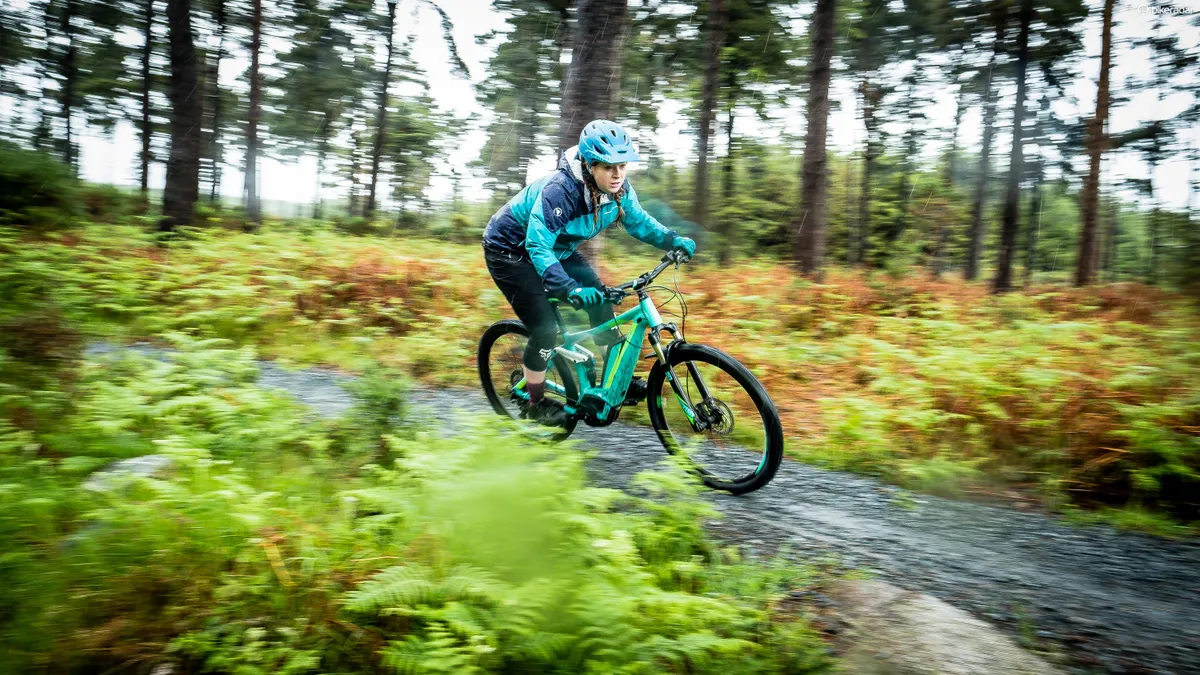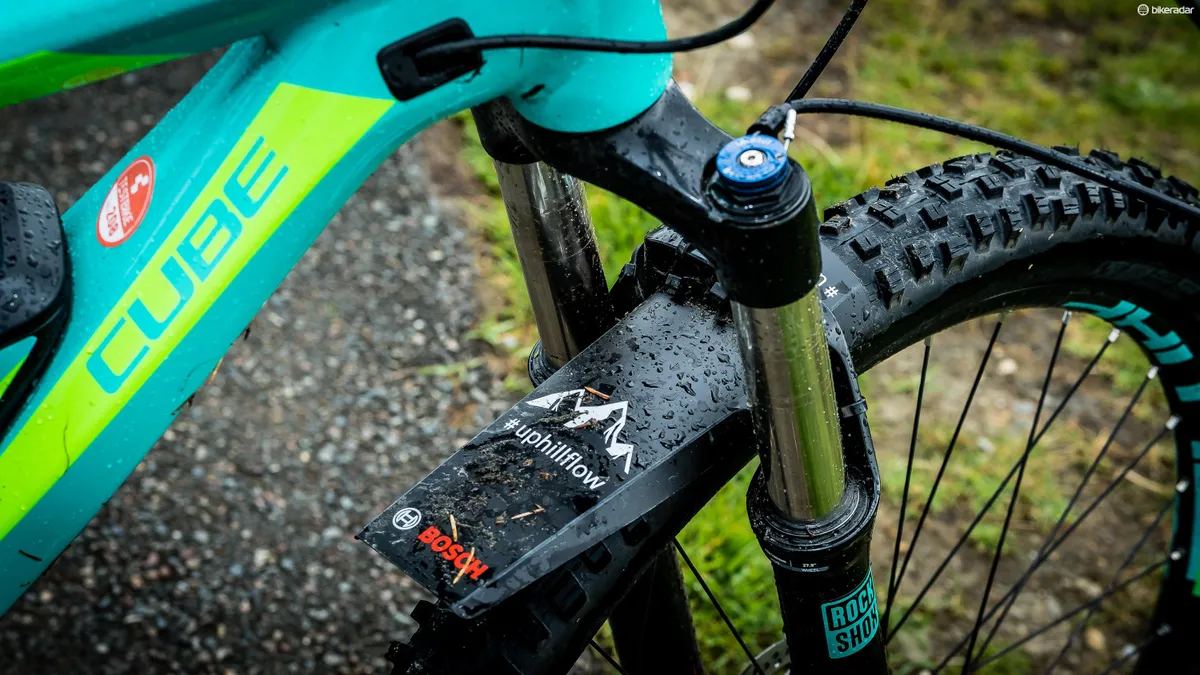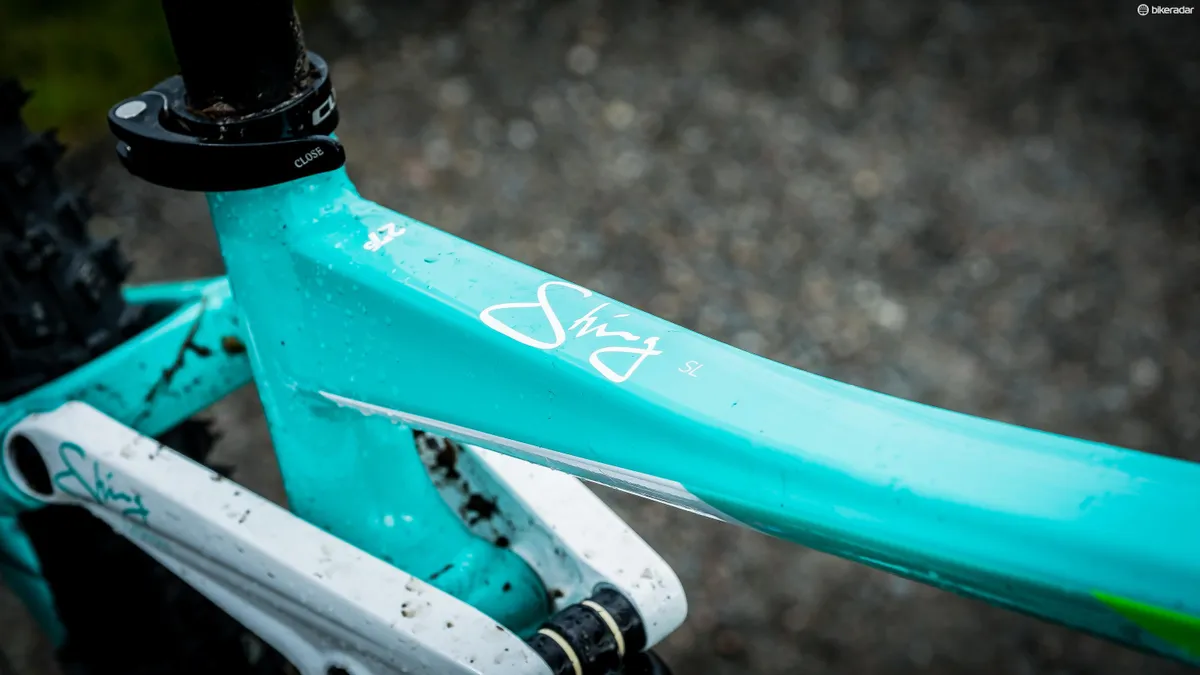BikeRadar Women tested the Cube Sting WLS extensively as part of its Bike of the Year awards and rated it highly. It's a fun, playful and capable machine. So what happens when you add an electric motor?
- Cube Sting WLS 140 SL women's mountain bike review
- More women's cycling news, reviews, interviews and more on BikeRadar Women
As e-MTBs become more and more popular, increasing numbers of brands are releasing their versions. Interestingly, there are still only a handful of brands offering women's specific e-mountain bikes, and Cube is one of them.
Women's specific in this case means a unisex frame with women's specific finishing kit: saddle, bars and grips.
I took the Cube Sting WLS Hybrid 120 for a short test ride around the Ballinastoe trail centre in Ireland, plus a sneaky ride down part of the 4th stage of the Enduro World Series course in the Wicklow Mountains — the word 'hybrid' here refers to the fact that the bike has a motor; think hybrid in the vehicular sense, rather than in the bicycle sense.
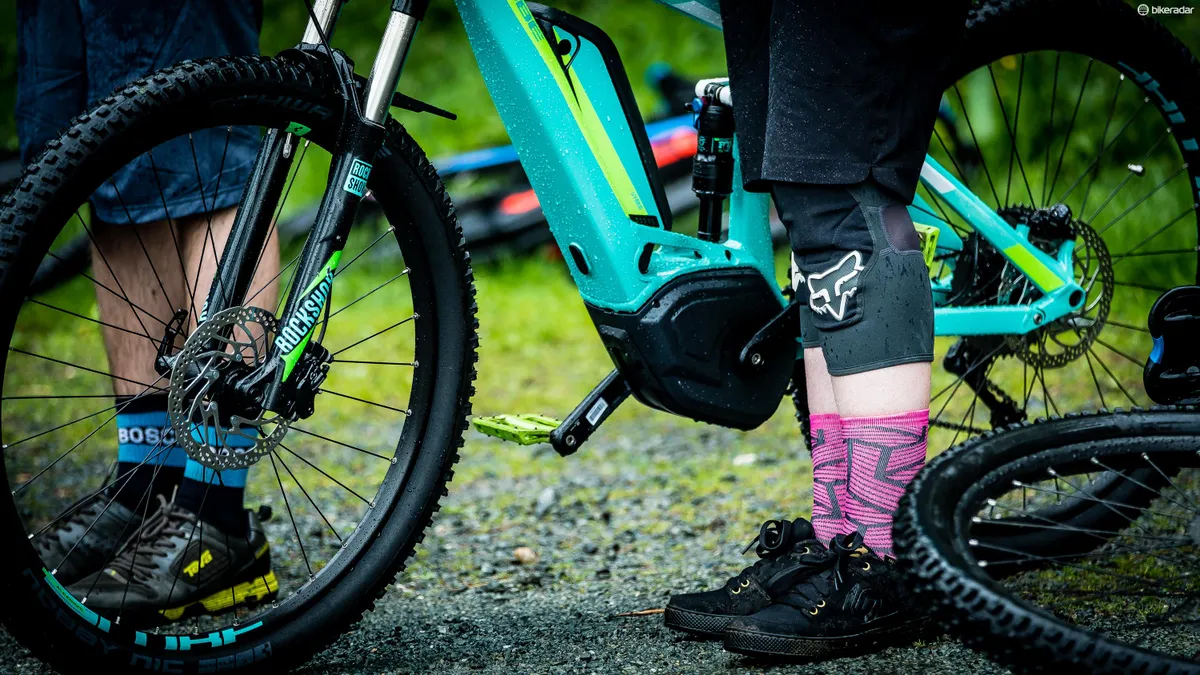
Parts and spec
Unlike the Cube Sting WLS we tested for Women's Mountain Bike of the Year, the e-MTB version comes with 120mm of travel rather than 140mm. The forks are RockShox Recon Silver TK Air and are paired with a Fox Float DPS Performance shock.
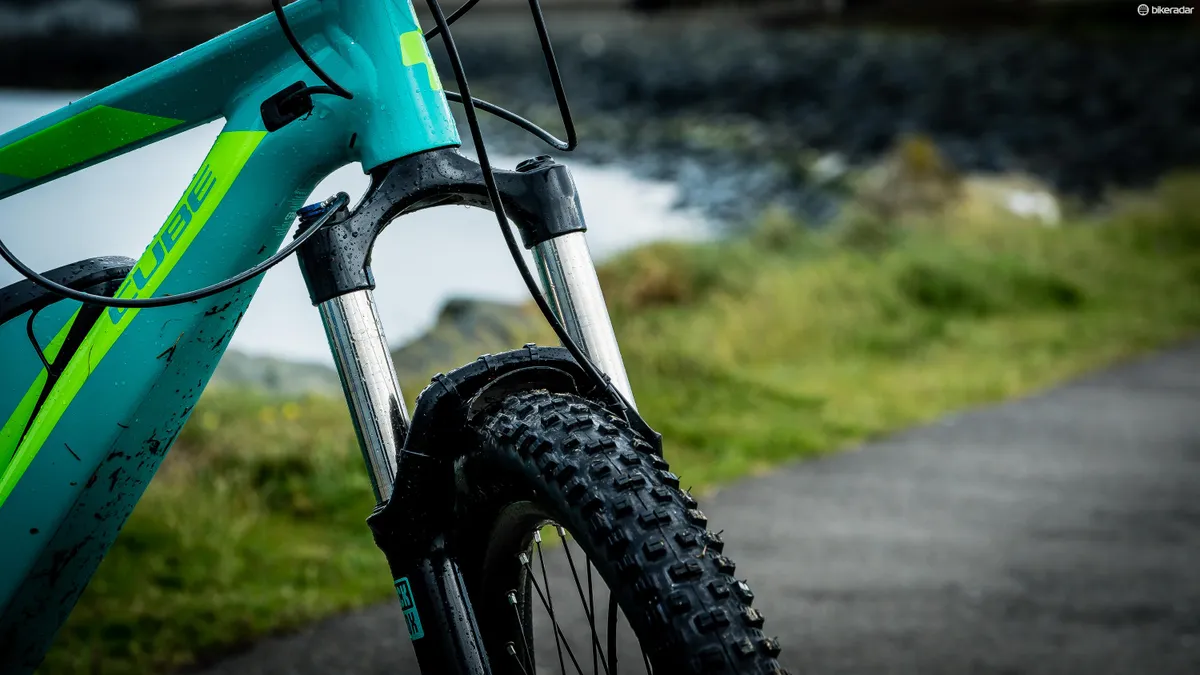
Drivetrain wise, Shimano XT shifters, derailleurs and cassette, plus FSA crankset, provide part of the forward momentum, the other part being driven by the Bosch Drive Unit and battery — more about that below.
The 1x11 system with 11-46t cassette is plenty wide enough for climbing, descending and general trail riding, particularly when partnered with a little electronic motorised help.
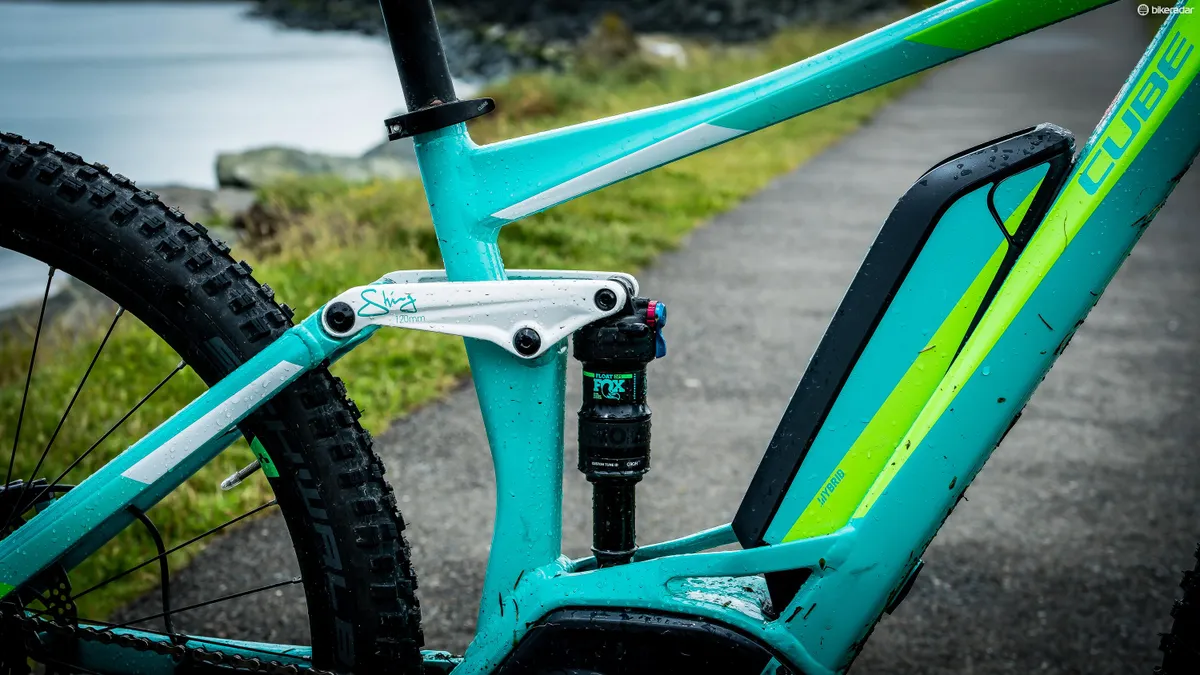
Stopping power comes courtesy of Shimano Deore, and the Cube wheels also feature Deore hubs with Schwalbe Nobby Nic kevlar 2.35 tyres.
The frame geometry is slightly different to the 140mm version of the bike; there's a head angle of 68.5 degree on the e-MTB compared to 67.5 on the 140mm version, which will be due in part to the shorter travel on the forks.
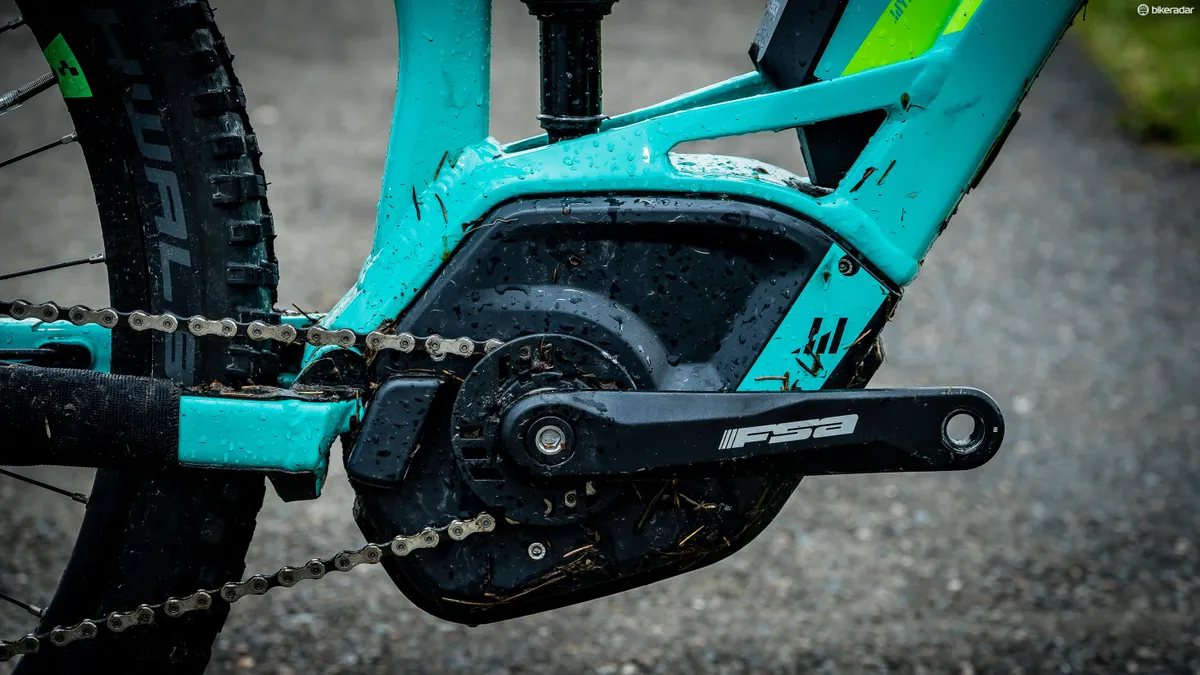
The seat tube angle is only very slightly different, 74 degree on the e-MTB compared to 74.5 on the 140mm version. There is also a 140mm version of this bike for those riders who like a bit more travel.
Cube supplies the finishing kit, including decently wide 740mm bars, and a Selle Italia WLS Performance women's specific saddle, while the aluminium frame comes bedecked in a characteristically bright 'mint 'n' flash green' colourway,
Bosch battery and motor
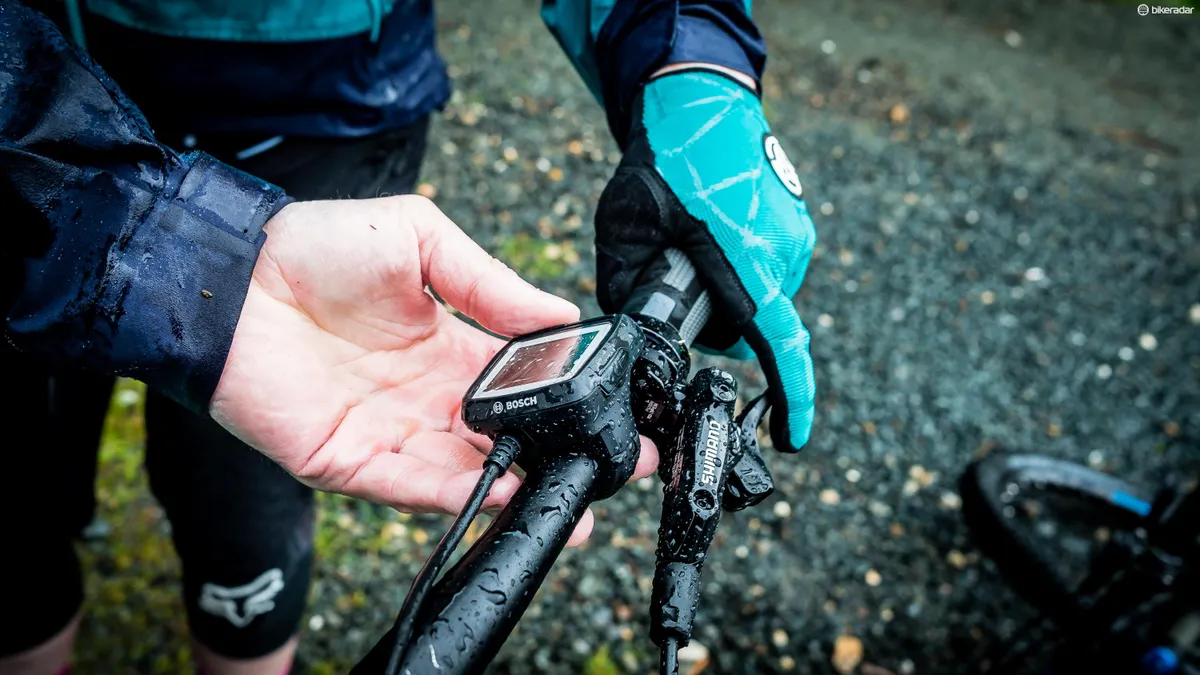
There are a number of different e-MTB motors and battery systems on the market, and Cube works closely with Bosch to develop and supply the systems for its range.
The system comprises a Bosch Drive Unit Performance CX system with a Bosch PowerPack 500 system and a Bosch Purion display unit, which is mounted on the handlebars. This system provides 75nm of torque and 250 watts in a power-assist capacit — it only kicks in when you're pedalling.
There are four modes on the system, which you can set and switch between using the display with the push of a button: Turbo mode, the most fun, gives you a big assist and makes climbing an absolute doddle, but will eat through your battery life quickly; Eco mode gives you some noticeable assistance and will last the longest; Tour is all about giving you support over longer distances, but perhaps the most useful for the riding most mountain bikers will be doing is e-MTB mode.
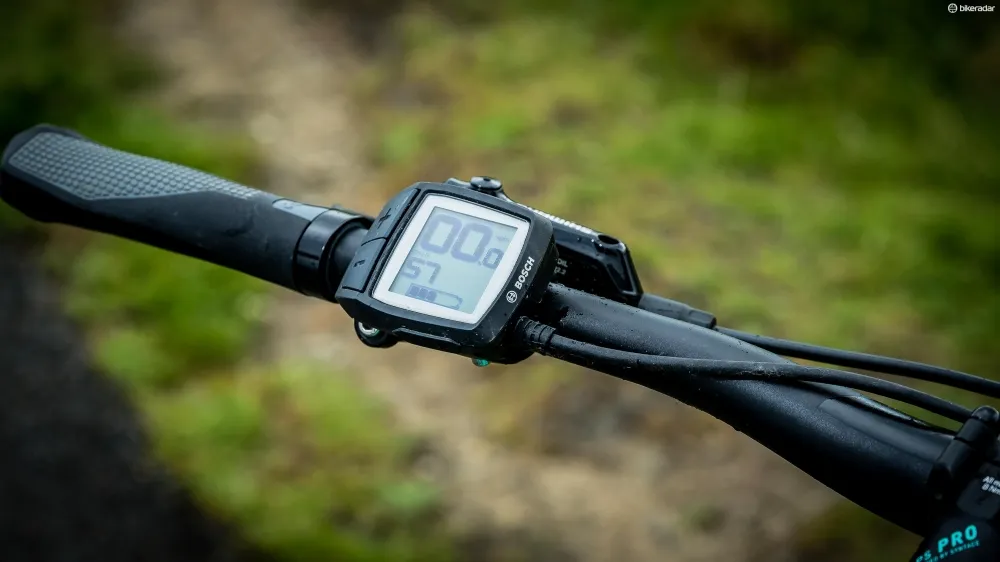
The Bosch system detects what type of terrain you are riding and will provide an assistance level to match. Tough climb? Power mode. Riding on the trail? A gentler level of power input. This is designed to provide the perfect blend of power assist and economical use of battery life. It'll give you up to 300 percent assistance, which makes noticeably short work of climbs, with a maximum speed of 25kph.
The range will of course vary depending on what mode you have the motor on, how much you weigh, and what terrain you are riding over.
Bosch has a handy page on its website that will help you estimate this by changing the features of your ride, popping in your weight, and estimating your speed. As a general rule, a rider weighing around 80kg on mountainous terrain travelling at about 15kph will get around 45km on Power mode and 98km on Eco mode, according to Bosch. Not bad!
The control unit itself is simple to use and read. The display is digital and shows speed and battery life, and has two large plus and minus buttons on the grip side to control the assist level. These are relatively easy to use, but I did have to shift my hand to operate them, which required loosening my grip.
Ride feel
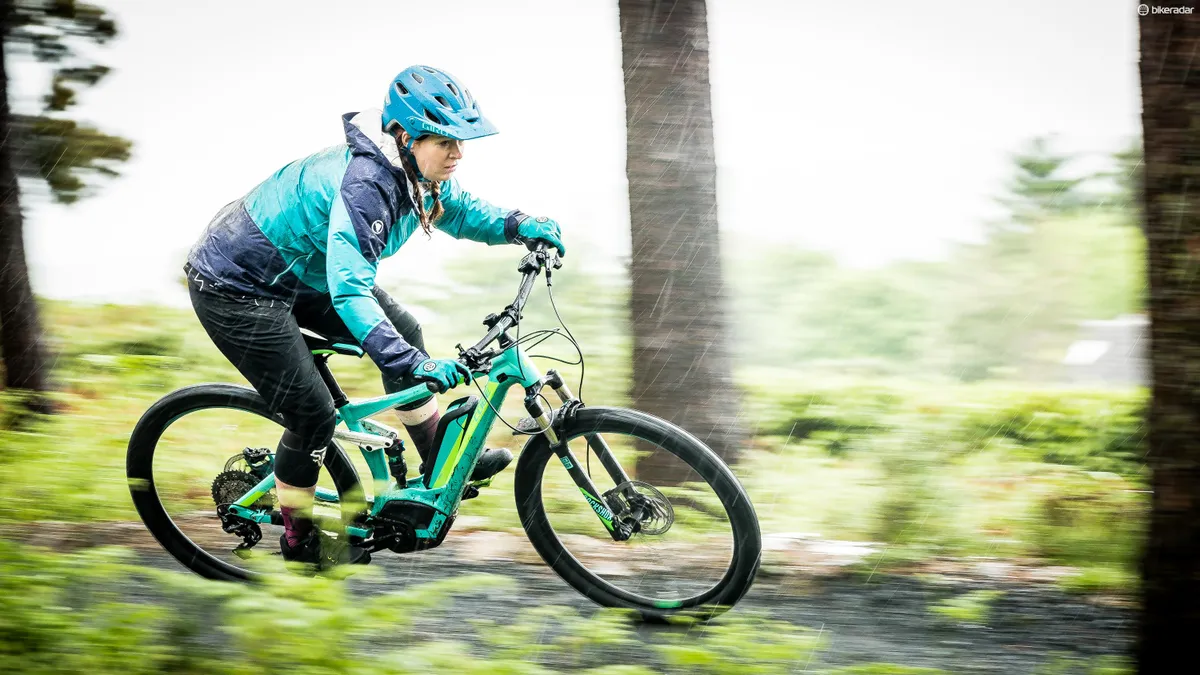
I took the Sting out for a few hours around the scenic trails of Ballinastoe in the Wicklow mountains. Well, I say scenic, I was told there were beautiful views but since we were covered with thick cloud and torrential rain, I had to take my guide's word for it.
However, this brings me nicely to the first benefit of e-MTBs in general. While sloshing down a wet trail in the rain is a whole lot of fun, long fire road climbs most certainly are not. Therefore, switching the bike into either Turbo or e-MTB mode was a great, since I zoomed up the climbs. I imagine this is what Tracy Moseley feels like when riding normally.
This isn't a full first ride because I'd like more time on the bike before drawing any firm conclusions, but there are a few observations I can make based on my taster.
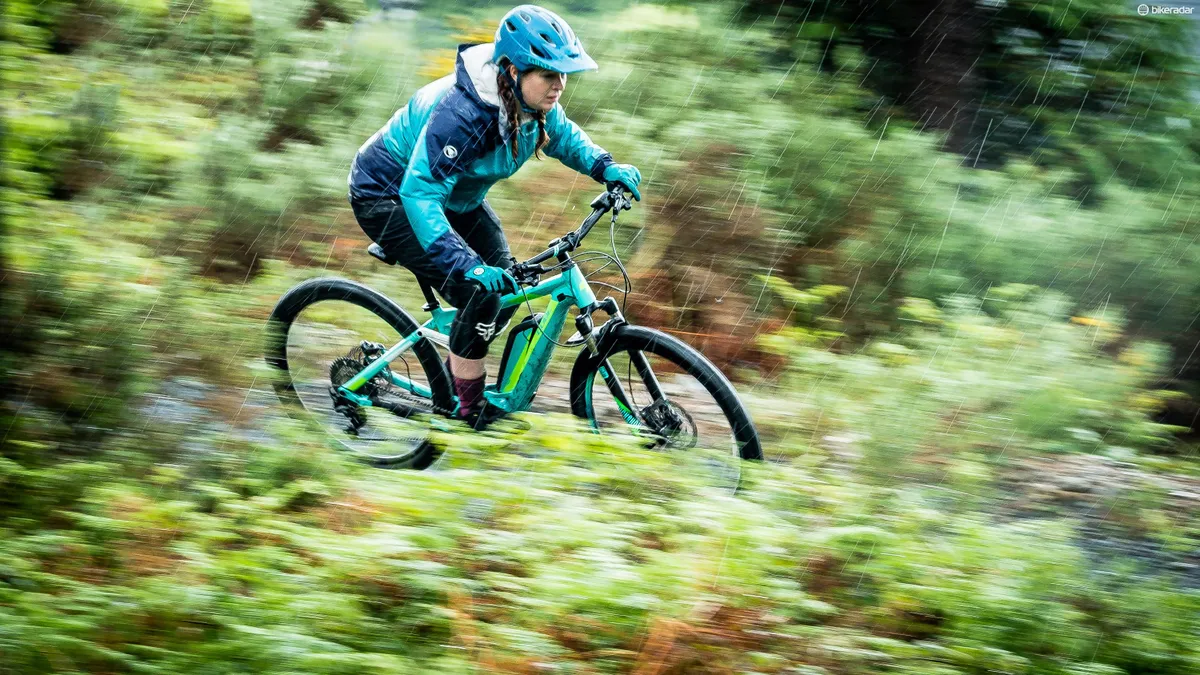
The bike did take some getting used to, mostly due to the general attributes of being an e-MTB, rather than any particular negative or positive features of the bike in general.
For example, the q-factor (the distance between the points where the pedals attach to the crank arm is bigger on e-MTBs because of the space needed for the motor in the bottom bracket area. Essentially, this means the pedals sit wider out from the side of the bike, and it's mostly noticeable when riding on narrow trails or trails that are in a rut.
The Bosch pedal assist kicks in quickly but but not suddenly; I didn't experience a jolt, just a rapid ramping up of torque. On smooth climbs, no problem, but it felt alien on trails to start with. Where I'd normally pedal forward to adjust my foot position coming into corners or features, this action actually triggered the motor meaning I accelerated when I didn't mean to.
However, after a short while on the bike I adjusted to both this and the q-factor issue; it's not prohibitive, these elements just require a slight adjustment to the way you ride.
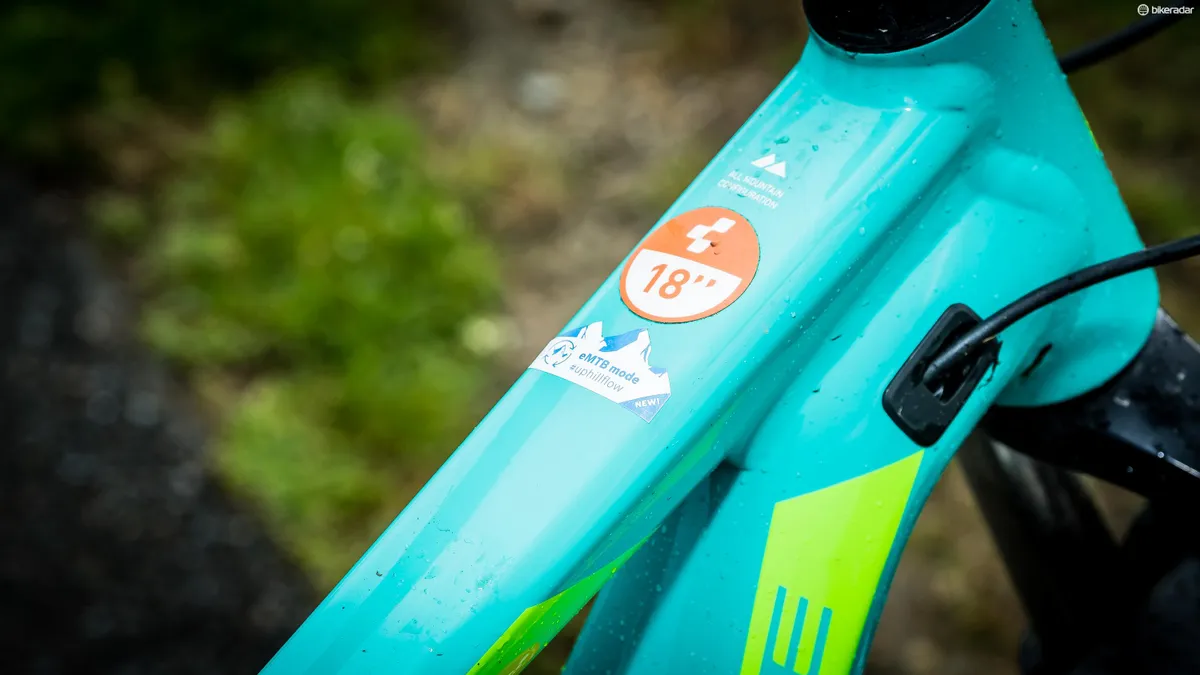
One definite benefit is the lower centre of gravity that the battery and motor provide, giving good stability when riding.
The Cube itself feels remarkably playful and fun on the trails. While it's heavier than a non electric MTB, I was still able to throw it about and have fun. I had no issue pumping through terrain either, popping off little drops, and the motor was a definite help when it came to keeping consistent power when riding over wet, rooty climbs.
The e-MTB mode was useful because I could just set it and leave it, and although the motor controls are easy to use they do require you to let go of the bars with one hand to operate.
Look out for a more in-depth review on BikeRadar in the future.
Prices, sizes and availability
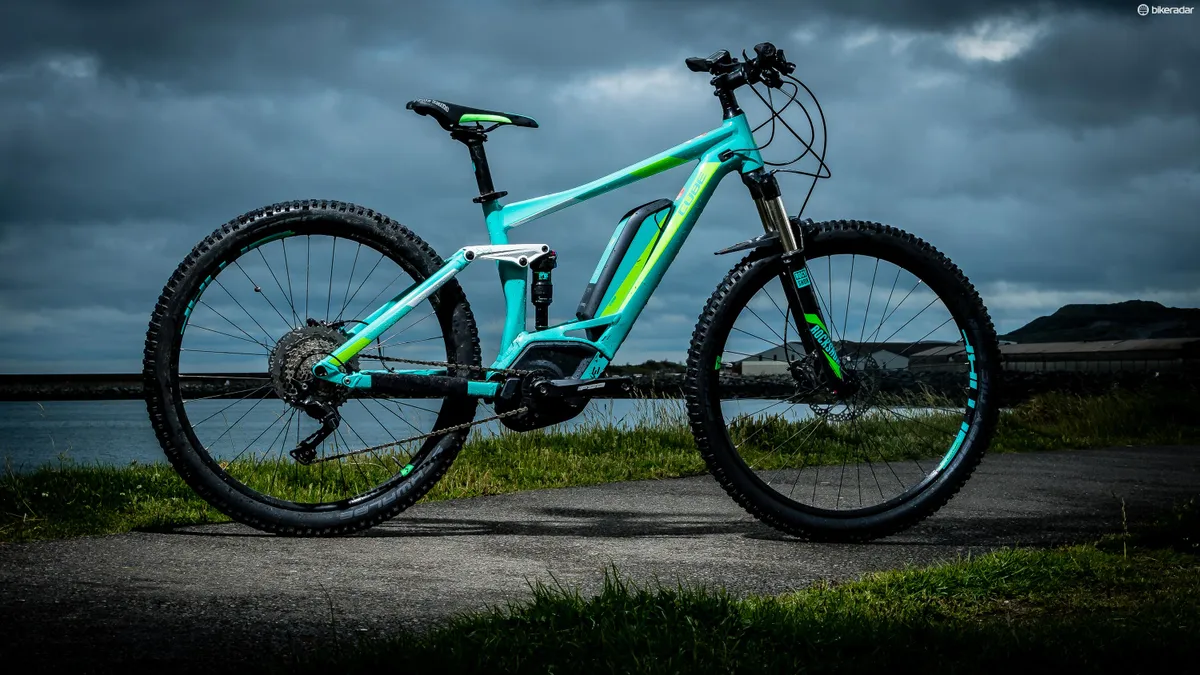
The downside to the Sting WLS Hybrid is that it only comes in two sizes: 16" and 18".
At 5'8"/1m 73ish, the size 18" was a comfortable fit, but of course having only two sizes limits or eliminates the options for women at the taller and smaller end of the scale.
The Cube Sting WLS Hybrid 120 retails for £2,999 (international pricing TBC) and is available from your local Cube retailer.
